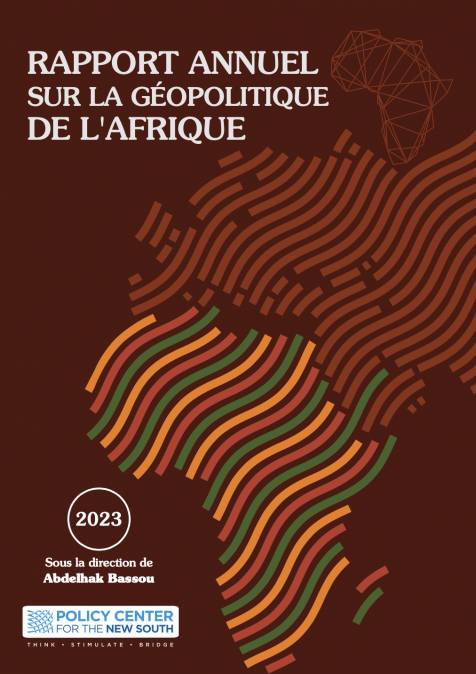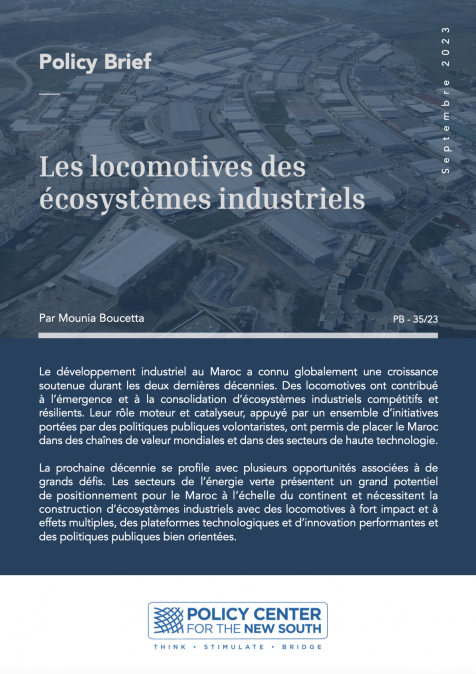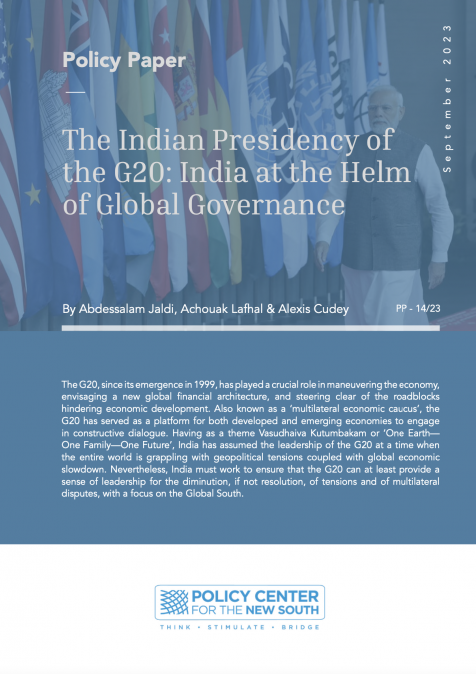RELATED CONTENT
-
 AuthorsSeptember 8, 2023Le Mozambique fait face depuis 2017 à une insurrection menée dans la province de Cabo Delgado, au nord-est du pays, par un groupe militant islamiste dénommé Ahlu Sunna Wal Jamaa (ASWJ) – qui aurait fait allégeance à l’État islamique (EI) et qui est aussi connu sous le nom de Al Shabab, sans lien avec le groupe éponyme en Somalie. Les problèmes sociaux et économiques de cette région – qui concentre la plus grande partie des 18 % de musulmans que compte le pays, à majorité chrétienne ...
AuthorsSeptember 8, 2023Le Mozambique fait face depuis 2017 à une insurrection menée dans la province de Cabo Delgado, au nord-est du pays, par un groupe militant islamiste dénommé Ahlu Sunna Wal Jamaa (ASWJ) – qui aurait fait allégeance à l’État islamique (EI) et qui est aussi connu sous le nom de Al Shabab, sans lien avec le groupe éponyme en Somalie. Les problèmes sociaux et économiques de cette région – qui concentre la plus grande partie des 18 % de musulmans que compte le pays, à majorité chrétienne ... -
 AuthorsSous la direction deAbu Bakarr BahAlioune NdiayeBabacar NdiayeBenjamin TraoréBodo AndrianarisoaDorcy RugambaGilles YabiHamza MjahedHind ZaamounMathieu BereMahamadou SimparaMohamed Ahmed GainNorman SempijjaPatrice KouraogoRania BarrakSilindile MliloHala BoumaizSoazic Elise Wang SonneTarek CherkaouiYoussef ErramiYousra HamdaouiSeptember 8, 2023Cette 6ème édition du rapport géopolitique de l’Afrique s’inscrit dans la même ligne éditoriale que ses précédentes. Elle se veut une plateforme où des auteurs et analystes africains racontent l’Afrique géopolitique de 2022 en débordant parfois sur les événements saillants du début de 2023. Ce moment, d’environ une année et demie, ne peut échapper à la guerre en Ukraine comme toile de fond du monde. Même lorsque les auteurs ne s’y réfèrent pas explicitement, cett ...
AuthorsSous la direction deAbu Bakarr BahAlioune NdiayeBabacar NdiayeBenjamin TraoréBodo AndrianarisoaDorcy RugambaGilles YabiHamza MjahedHind ZaamounMathieu BereMahamadou SimparaMohamed Ahmed GainNorman SempijjaPatrice KouraogoRania BarrakSilindile MliloHala BoumaizSoazic Elise Wang SonneTarek CherkaouiYoussef ErramiYousra HamdaouiSeptember 8, 2023Cette 6ème édition du rapport géopolitique de l’Afrique s’inscrit dans la même ligne éditoriale que ses précédentes. Elle se veut une plateforme où des auteurs et analystes africains racontent l’Afrique géopolitique de 2022 en débordant parfois sur les événements saillants du début de 2023. Ce moment, d’environ une année et demie, ne peut échapper à la guerre en Ukraine comme toile de fond du monde. Même lorsque les auteurs ne s’y réfèrent pas explicitement, cett ... -
Akram Zaoui & Serhat SuhaSeptember 08, 2023This podcast was recorded before the second round of the Turkish presidential election. While the result of the latter was still unknown, the first round as well as the legislative electi ...
-
AuthorsSeptember 7, 2023Le développement industriel au Maroc a connu globalement une croissance soutenue durant les deux dernières décennies. Des locomotives ont contribué à l’émergence et à la consolidation d’écosystèmes industriels compétitifs et résilients. Leur rôle moteur et catalyseur, appuyé par un ensemble d’initiatives portées par des politiques publiques volontaristes, ont permis de placer le Maroc dans des chaînes de valeur mondiales et dans des secteurs de haute technologie. La ...
-
AuthorsSeptember 7, 2023The G20, since its emergence in 1999, has played a crucial role in maneuvering the economy, envisaging a new global financial architecture, and steering clear of the roadblocks hindering economic development. Also known as a ‘multilateral economic caucus’, the G20 has served as a platform for both developed and emerging economies to engage in constructive dialogue. Having as a theme Vasudhaiva Kutumbakam or ‘One Earth— One Family—One Future’, India has assumed the leadership of the ...
-
September 5, 2023Developing countries face many challenges in mobilising private sector investment for sustainable infrastructure projects. Solutions include international cooperation and common environmental, social and governance (ESG) taxonomies. To close the climate finance gap, we need additional p...
-
AuthorsSeptember 5, 2023This paper was originally published on ecdpm.org COP27 reached a breakthrough agreement on a new loss and damage fund for vulnerable countries and opened the door for a review of the international financial architecture. Ahead of COP28 at the end of 2023, the AU-EU partnership can help drive global climate change and energy transition agendas forward. A fruitful collaboration between the two continents starts with the following: • Africa and Europe must find common ground to ma ...
-
September 5, 2023يخصص مركز السياسات من أجل الجنوب الجديد حلقة برنامجه الأسبوعي "حديث الثلاثاء" لمناقشة موضوع الانقلاب في النيجر: أبرز التطورات، آفاق الحل والسيناريوهات المحتملة مع الأستاذ عبد الحق باسوا، باحث بارز بمركز السياسات من أجل الجنوب الجديد. في صبيحة يوم 26 يوليوز أعلنت رئاسة النيجر بداية الانق...
-
AuthorsSeptember 4, 2023À l’approche du Sommet africain du climat (Africa Climate Summit), qui se tiendra à Nairobi du 4 au 6 septembre 2023, de très nombreuses organisations non gouvernementales (ONG) ont écrit au président du Kenya, William Ruto, pour lui faire part de leurs inquiétudes concernant l’ordre du jour de ce sommet. Selon ces ONG, les intérêts des entreprises et des pays occidentaux pourraient prendre le pas sur ceux de l’Afrique. Les vraies priorités sont notamment d’éliminer progressivement ...
-
by Hala Boumaiz & Len IshmaelSeptember 01, 2023In this podcast, we are joined by Dr. Len Ishmael, editor and co-author of the book “Aftermath of War in Europe: The West VS. the Global South?”. Dr. Ishmael delves into the groundbreakin ...







